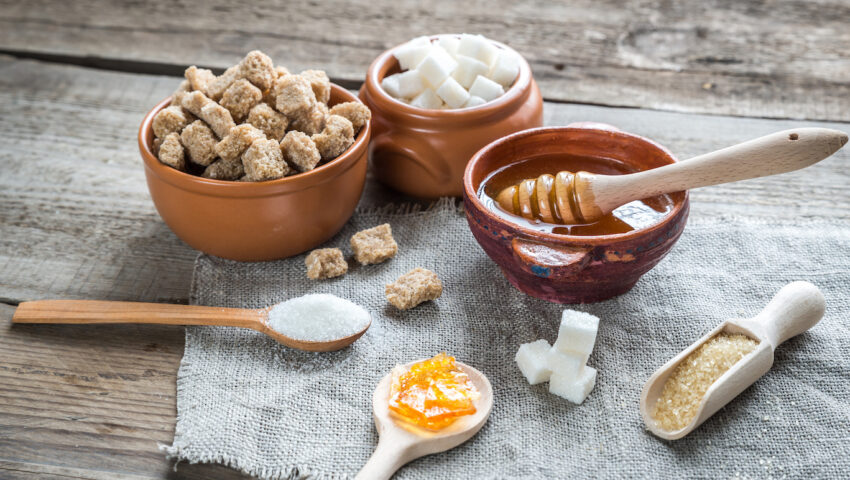Blogs
5 Ways to Reduce Sugar

We all enjoy eating sugary foods and it’s okay to include these as an occasional treat as a part of a healthy balanced diet.
The UK Recommendations for added sugar:
- Adults: No more than 30g a day (Approx 7 sugar cubes)
- 7–10-year-olds: No more than 24g a day (Approx. 6 sugar cubes)
- 4–6-year-olds: No more than 19g a day (Approx. 5 sugar cubes)
- Under 4 years– No guideline currently, but it’s recommended not to give food and drink with added sugar.
However, currently, statistics show we are consuming nearly double this recommendation daily!
What are added sugars?
- Sugars that aren’t naturally present in foods and are added, this includes honey.
- They are high in energy and have little to no nutritional benefits, therefore too much is harmful to our health.
What happens if we consume too much?
- Greater risk of tooth decay
- Increased risk of Type 2 Diabetes.
- Leads to weight gain.
Unfortunately for us, there are a lot of hidden sugars in the everyday products we purchase such as Pasta sauces, breakfast cereals or flavoured yoghurts. There are over 50 names for sugar on food labels, making it hard for us to find them and understand exactly what’s in the food we purchase. Always check the ingredients on food labels where you can, and pay attention to words ending in ‘ose’ or include malt or syrup!
5 Top tips for reducing sugar in the diet:
- Choose Wholemeal/wholegrains where possible.
Try and include as many wholegrains in your diet as possible such as brown rice, pasta, and bread. Due to being higher in fibre, not only do these foods help us manage our blood glucose levels better, they also release energy a lot slower, compared to refined carbohydrates, they also keep us feeling fuller for longer, so we are less likely to snack on high energy-dense foods that are also high in sugar, salt and fat.
- Aim to achieve your 5ADAY.
Consuming more fruit and vegetables has been associated with a lower risk of developing type 2 diabetes but they are also vital for our health as they are rich in Vitamins, minerals and fibre. Fruit and vegetables contain natural sugars therefore you shouldn’t have to consider cutting them down or out of your diet. However, may need to think about any fruit juices you consume, as these can be high in added sugar. Try to limit these to 150ml or choose whole fruit instead.
- How to handle cravings.
Cravings tend to last for approx. 10-20 minutes. Usually, when I have a craving, I try to distract myself by doing another activities, such as going for a walk, listening to a podcast, or calling a friend. They tend to subside, or I’ve forgotten about them completely.
If this isn’t the case, have other alternatives at hand- snack on natural yoghurt and fruit, a handful of unsalted nuts or an apple to keep the cravings at bay.
- Cook from scratch where possible.
This is the best way to manage what ingredients are in your delicious homemade dishes as well as avoiding hidden unwanted sugars.
- Keep Active.
Exercising has been found to help with the management of type 2 diabetes as it helps our bodies use the hormone, insulin, more efficiently to control the glucose in our blood. We should be aiming to incorporate 150 minutes of moderate exercise into our weekly routine. However, you don’t need to do this in one hit, break it down into more manageable chunks which is suitable for your lifestyle.
Further reading and resources.
https://www.bda.uk.com/resource/sugar.html
https://www.diabetes.org.uk/guide-to-diabetes/enjoy-food/eating-with-diabetes




